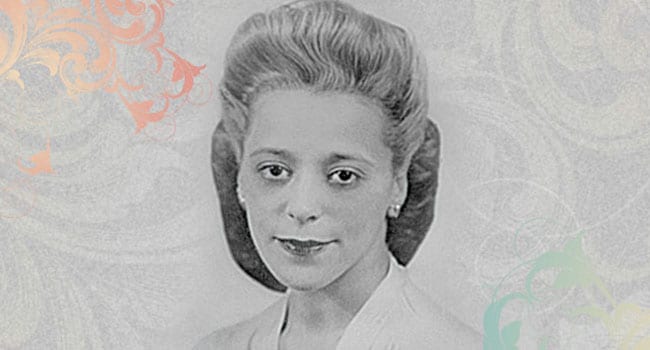 In studying the history of social change, I’m moved by the number of great people who died never knowing the full extent of their contribution to a better world.
In studying the history of social change, I’m moved by the number of great people who died never knowing the full extent of their contribution to a better world.
Three examples from the 20th century are Raphael Lemkin, Peter Bryce and Viola Desmond.
Lemkin was a brilliant lawyer and professor. He was also a Polish Jew who fled for his life during the Second World War, eventually ending up in the United States. Having studied the Armenian Genocide, he became an advocate for human rights. While teaching in America, he coined and defined the word genocide.
Lemkin was able to get the United Nations to accept a somewhat watered down definition of the word and pass the Genocide Convention in 1948. As the Cold War gained steam, Lemkin’s efforts to have further laws passed to protect human rights were largely ignored. He died penniless in 1959, exhausted by his efforts at the age of 59.
Bryce was a prominent doctor, the first secretary of the Provincial Board of Health of Ontario. In 1904, he was hired by the government of Canada. In 1907, he filed a report on health conditions at Indian residential schools, where he found that roughly 24 per cent of the children were dying of tuberculosis.
Bryce proposed solutions that would have improved these conditions and saved many lives. His report was ignored by the Department of Indian Affairs and he was eventually pushed into retirement.
As a private citizen, Bryce courageously published his findings in a book he called The Story of a National Crime. This generated little interest in the media or among the Canadian public. Bryce died in 1932 at the age of 78. He never knew the significance his work would have when his writings surfaced again in the 1990s.
Desmond, now recognized on the Canadian $10 bill, tried to raise awareness about the unjust and largely unwritten race laws that targeted black people in Canada.
As an entrepreneur on a business trip, she was manhandled, arrested and put in jail one night in 1946 for sitting in the whites-only section of a movie theatre in New Glasgow, N.S.
There was no law saying black people couldn’t sit in this section and Desmond wasn’t charged with a race crime. Seats were more expensive in the white section, so she was charged and convicted of defrauding the government of the additional sales tax she would have had to pay for the more expensive ticket.
Though Desmond received support in the black community and tried to fight the charge, a new trial would not reverse the conviction.
Desmond was never the same person after the ordeal. Her marriage disintegrated and she gave up her business. She moved to Montreal and then to New York, where she died in 1965 at the age of 50.
Certain principles may not always be popular but they’re always true. All people are equal, all people deserve to be treated with respect and “the arc of the moral universe … bends toward justice,” as Martin Luther King said.
As Mohandas Gandhi said, “It’s the action, not the fruit of the action, that’s important. You have to do the right thing. It … may not be in your time that there’ll be any fruit. … You may never know what results come from your action. But if you do nothing, there will be no result.”
Lemkin, Bryce and Desmond are now celebrated as pioneers of human rights. We recognize they did the right thing, despite the efforts of others to suppress their voices.
Their examples demonstrate that whether others listen is of little importance. We control ourselves, we control our voices, we control our actions and we have to look at ourselves in the mirror every day.
The world changes with each individual decision to do the right thing.
Troy Media columnist Gerry Chidiac is an award-winning high school teacher specializing in languages, genocide studies and work with at-risk students.
The views, opinions and positions expressed by columnists and contributors are the author’s alone. They do not inherently or expressly reflect the views, opinions and/or positions of our publication.


